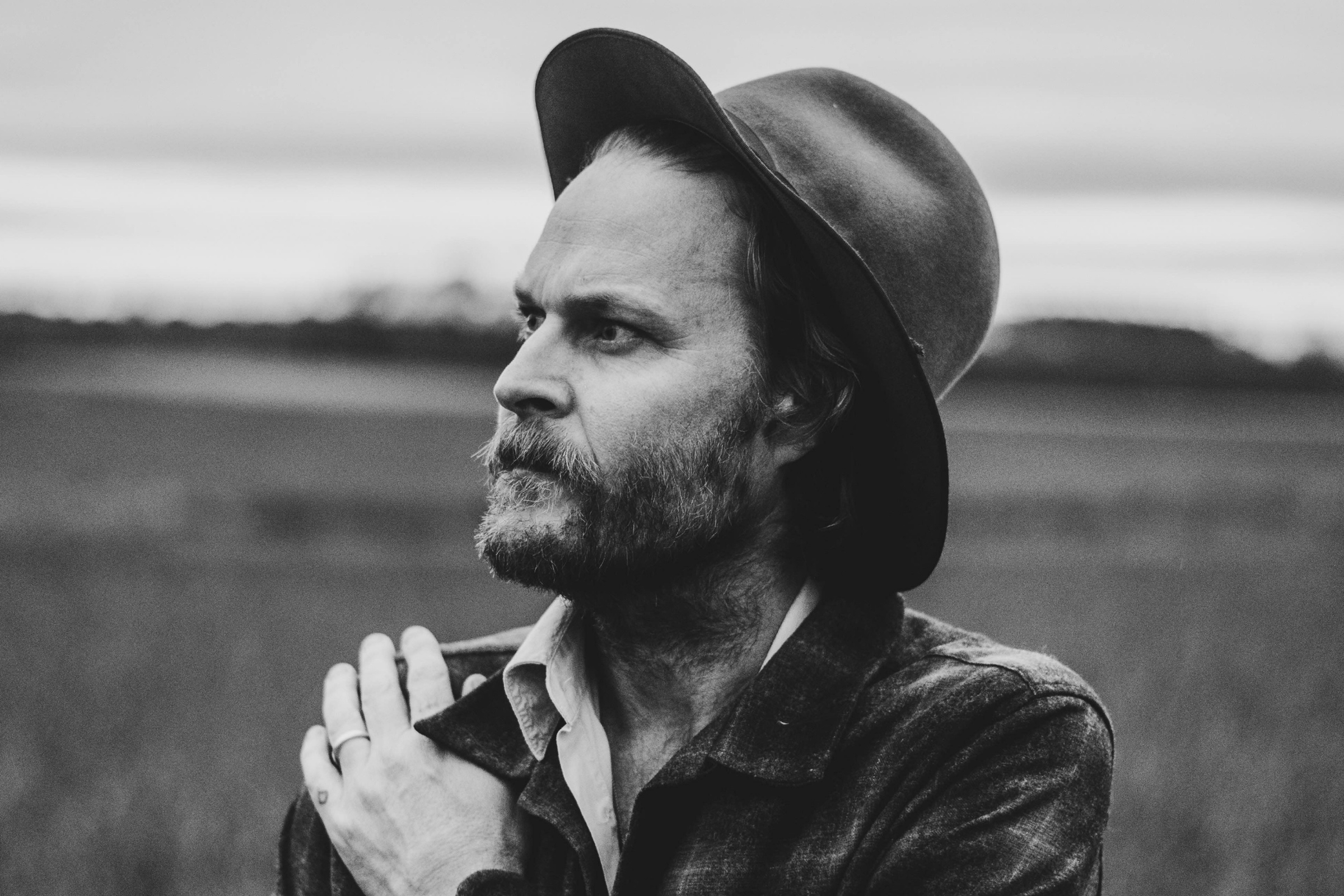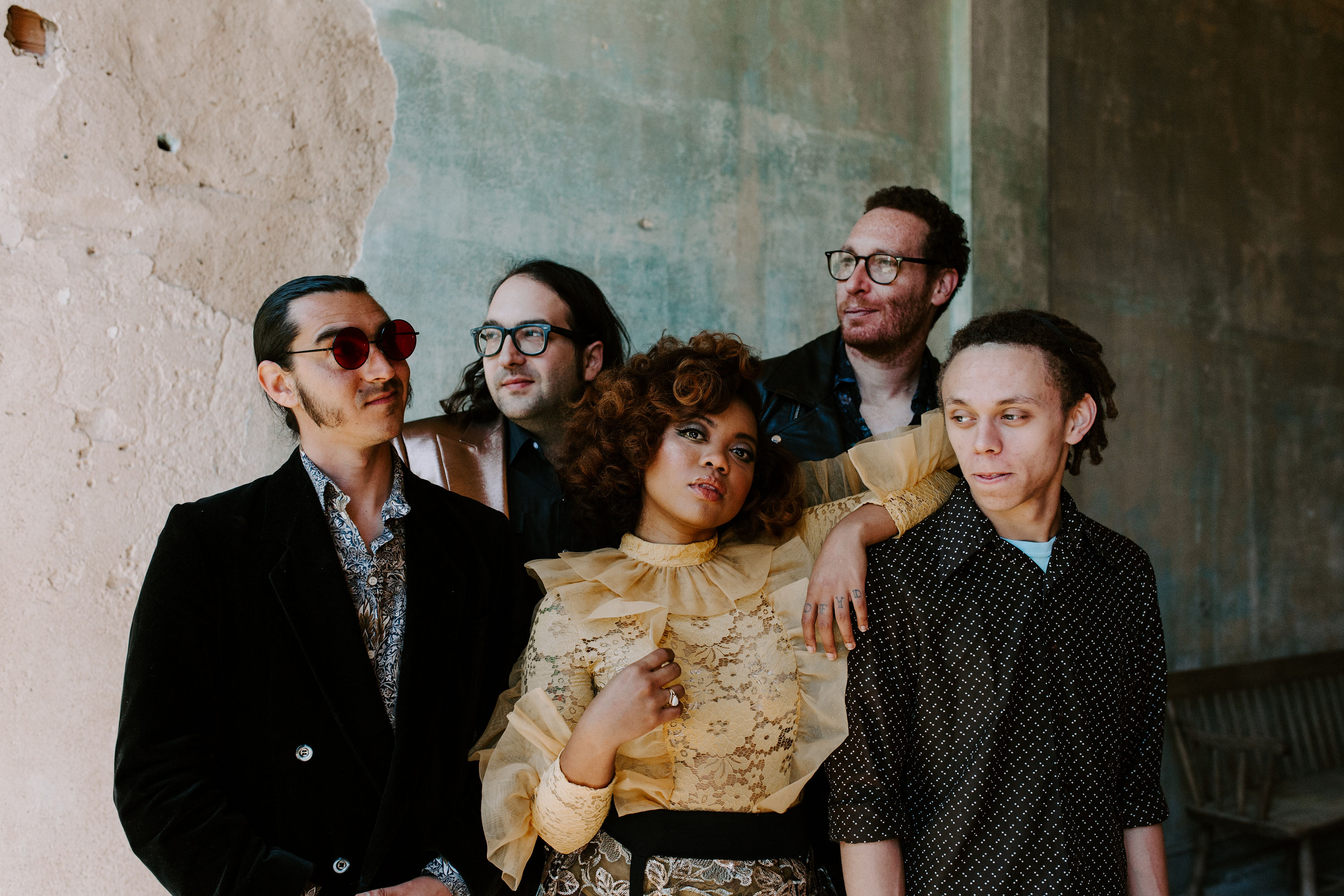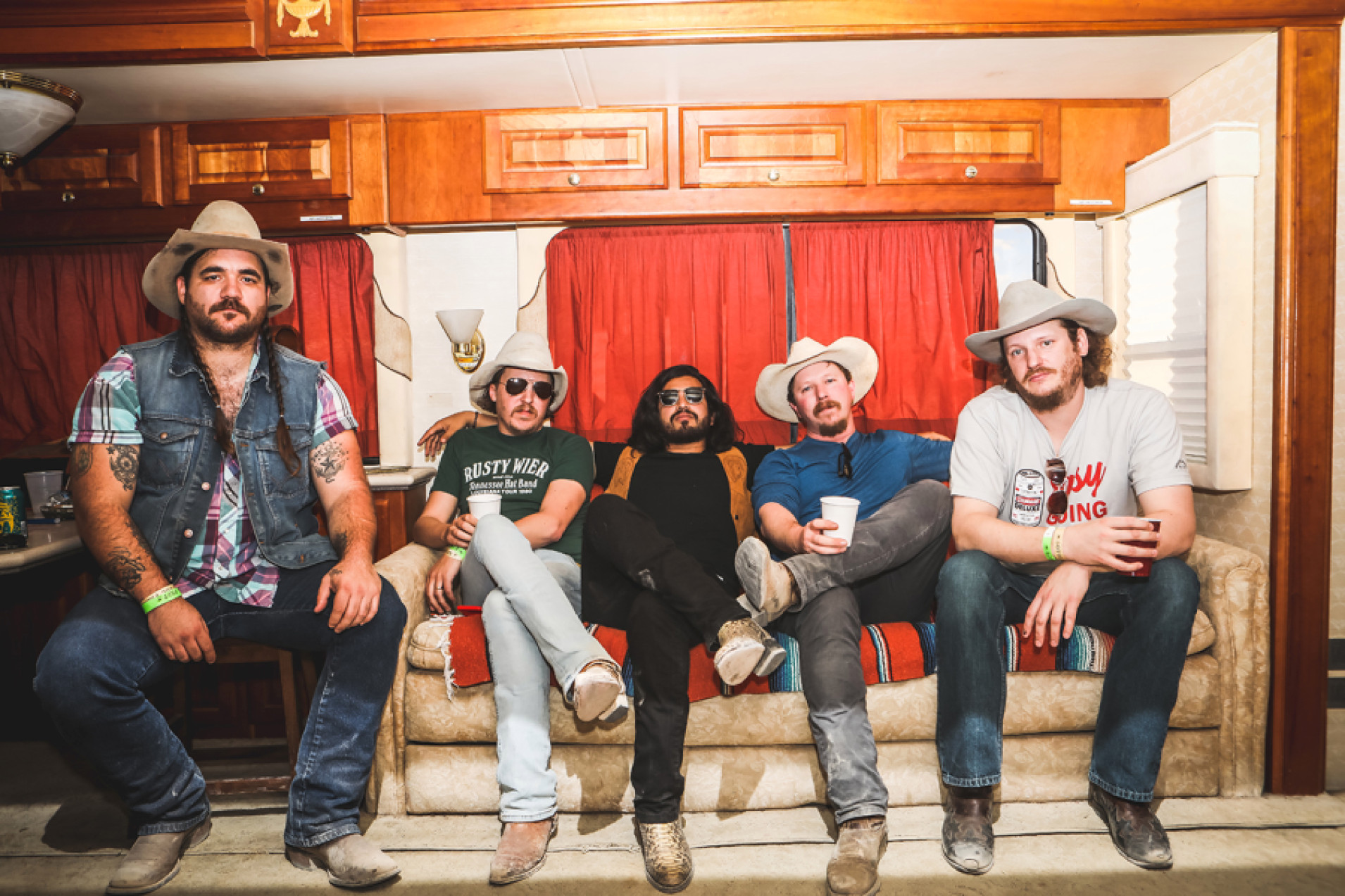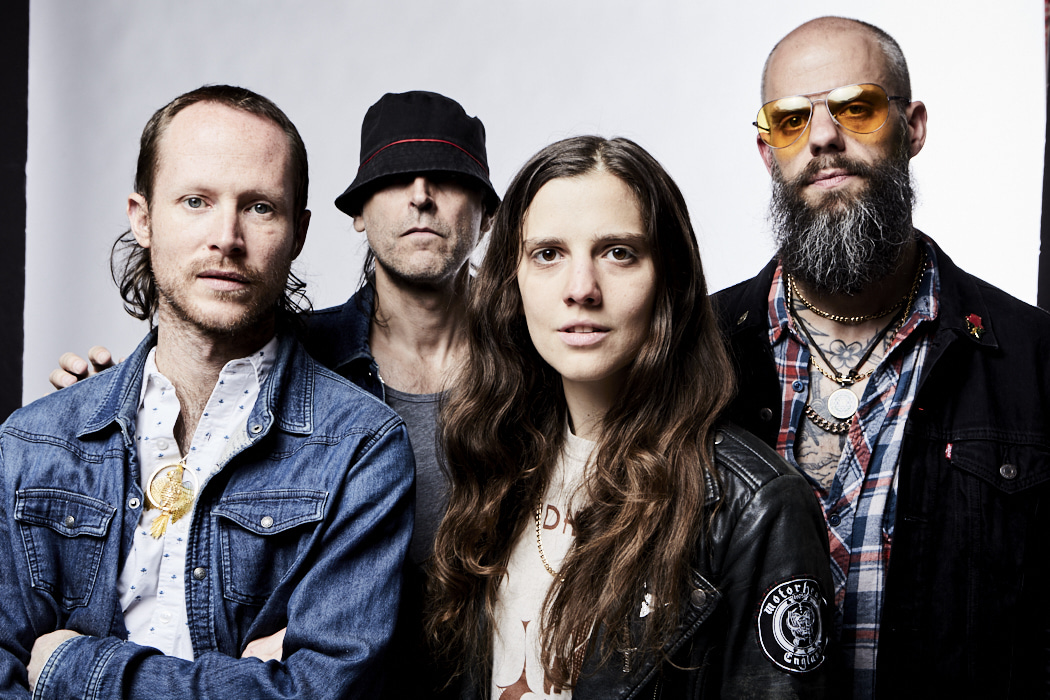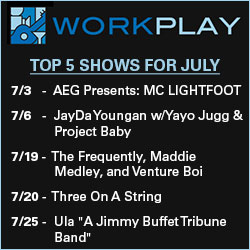Adia Victoria shares what the blues taught her; comes to Saturn on Thursday
Adia Victoria was born in Spartanburg, South Carolina. The 32-year-old has spent much of her life in the South, and much of that has been by choice despite the title of her 2016 single “Stuck in the South.” Now, she calls Nashville home, and it’s a place that she finds herself grappling with the realities of the impact rapid development has on the lower class. It’s within that space that she has found her identity as an artist on this year’s sophomore effort, Silences.
Before her visit, she spoke about the things that she has learned from the blues, how important the genre has been to her and how it has allowed her to speak her truth. She also talked about the city she calls home and her frequent frustration with it.
You’ve spoken a lot about artists growing more comfortable in their own skin and speaking their truth. What changed within you between Beyond the Bloodhounds and Silences that allowed you that same growth?
I just think it was time. It was a matter of time. It was a matter of me kind of being forced to go back inside of myself; not really having a choice or an option, being back home in Nashville and having to deal with a lot of things back home. Having to deal with relationships and my best friend passed during that time. These are things that should push you into yourself. We have a wonderful society that does things to distract you from going there. But I sat with myself; I sat in the quiet. I sat in silence. I listened to myself honestly – without judgement – for the first time in years.
Did that come through introspection? Did you work through those emotions with someone or was it a process that happened alone?
Kind of alone. I went so far in one direction that I think it was a pretty natural process; my body going back the other way. There was a depression, and I believe that depression is your body’s way of telling you, “Hey, it’s time to slow things down. You need some time to process all of these unique experiences that you just went through.” Or maybe they could be traumatic experiences; but it was something monumental that shifted you; your body, your psyche. It was time to respond and get a grasp on it. I think people are afraid of that; they’re afraid of that process of reflection, of introspection. We’re not oriented inward in our society; we’re oriented outward with everything else.
I realize that artists hate labels, but there is this word that follows your music around – “gothic.” This record is way, way darker. Was that a product of the world around us or was it internal?
I think it was both. Just because I’m a musician doesn’t mean that I’m divorced from the world around me. I would never want to be that way. I’ve always used my art – me and my primary relationships, beyond the people that I love and what not – it’s the South, it’s race. It’s what I know. It’s a lot of what compels me and triggers me to make art so that I can understand it and accept it. My whole life I’ve been doing work to find acceptance with my circumstances. That’s going to be my life’s work until the day I die. It just so happens that the place that I was born and raised was the Deep South, and there’s work that I need to do to accept these truths and grow in the relationship that I have with it. If it comes across as “gothic,” I can see that. That’s cool. That’s alright with me.
And you find therapy in that?
Yes. With the blues, there’s a call and a response, right? So my art is me making a response to the call. It’s my chance to speak up and say, “Well, actually, this is how I felt. Here’s my comments on that.” It’s a chance for me to release a lot of thoughts and ideas that I have about the world around me.
You mentioned the word “blues.” Over the past month or so, you’ve created your own Twitter hashtag “[expletive] the blues taught me.” What’s the most important [expletive] you’ve learned from the blues?
I [recently did a post] that said something like, “We all exist together. We are all on a continuum. We are all part of a larger journey than ourselves. Sometimes that journey will include other people and sometimes there will be moments of immeasurable isolation and solitude and loneliness. We need to learn how to embrace all of these things as parts of our extremely manifold humanity.” That’s what the blues did. The blues was invented by people – as I said on my Twitter – that were one generation removed from slavery. Imagine that. They’re one generation removed from having absolutely no autonomy; down to who you [expletive] and had children by; the most intimate moments of our lives – decisions of our lives – these people did not have. But they were able to understand that they could draw strength from the people around them; that there’s still a collective of people around them that they could cobble together an identity from and therefore make art. That’s still relevant to this day. You think about all the art that was made in 1902 or whenever these guys were writing. Look at the [expletive] the dominant culture was doing back then. Who gives a [expletive] about what white people were writing; pop music from back then? Nobody gives a [expletive]. But if you put on some Robert Johnson; you put on some Bessie Smith; you put on some Ma Rainey – that still cuts deep. It’s still relevant. And that’s what the blues taught me. You are speaking to the very inherent places in people’s humanity; no matter what you look like, no matter where you come from – people are going to be like, “Yep. I know that.” All of these things are built up to make it difficult for us to see that in one another. When you can acknowledge that within yourself, other people can acknowledge that within themselves through you – that’s the most important thing that the blues taught me.
White music was pretty irrelevant in the early 20th century…
Nobody is dusting off records today saying, “Hey man, you wanna dance to ‘The Charleston?'” No! [Expletive], I don’t. But if you put on [the blues], I can dance to that. They figured it out! That’s why the blues is so dangerous. It’s got it all figured out.
How do you feel about its appropriation over the past 50 years or so?
I get it. The blues is fun. It’s exhilarating. I get why white men want to play the blues. I get why it attracts them the way it does. However, when I listen to white men play the blues, I’m not necessarily convinced. And I don’t listen to them to be convinced. I tell people, I love white dudes playing the blues. I love the Black Keys. I love Dan Auerbach. I love Jack White. But it doesn’t touch me on the same level; and I don’t need it to, and I don’t expect it to because they can’t. They don’t understand – on a certain level – where the blues comes from. They’re great at playing it; they’re proficient, it’s a [expletive] of a good time. But on a certain level, they don’t get it. That’s okay. But I do think it’s important to keep the blues vital and to keep it in the hands of black people who are able to color it, so to speak, with their perspective. Because it is a unique perspective in society, especially black women.
Obviously you weren’t around in the early 20th century when that was happening. But do you still feel a deep connection to it within your own life?
[Expletive] yeah. It’s race, it’s gender, it’s socioeconomic status. People like Bessie Smith and Ma Rainey – when they would record their songs, and then perform them live – they would speak directly to other black women. And these weren’t middle class black women; these were lower class, like washwomen black women. These were my people. This is where I come from. They would share their stories and their experiences with the women around them. Koko Taylor said in an interview once, “I write these songs. I may not have personally gone through this, but I know somebody in the crowd did. And she might need to hear this. She’s not alone. She doesn’t have to feel invisible.” That’s what the blues says for me when I listen to it as a black woman. It’s an outlet where I’m able to feel seen. That’s the difference between when a black woman sings the blues and when a white man does. White man can see himself on the billboards on the highway and he’s validated. But we have to fight to validate ourselves. That’s what I get when I listen to the blues. I feel seen. I feel real.
Who was your introduction to the blues when you dug into the genre?
For me it was Skip James. He was my blues grandfather – my great-granddaddy – who took me by the hand when I was living in Atlanta, Georgia and told me, “You have a story to tell. All the parts of yourself. The sorrow. The joy. The sinister parts. Put it all in a song.” I remember hearing “Hard Time Killin’ Floor” for the first time and just being like, “Yeah. Yeah.” That touched me in my soul. That [expletive] was going underneath everything else; all the [expletive], the day-to-day of going and working as a telemarketer. This is what lies beneath. These are the kinds of stories that I need to be telling. They’re terrifying. There’s something timeless about these songs, like you were hovering in some space with him outside of this reality that’s pressed on us. That’s what Skip did. He took me by the hand and took me to another world and he changed my life.
Do you feel comfortable with that identity now? Like there’s no need to be attached to “Americana” or Nashville or any of the places that publications may try to box you in – are you fine with, “I’m a blues artist?” Is that where you’re at professionally?
Yeah, I never felt like I had to be attached to that [expletive]. You know why I was in Nashville? Because my mama lives there. That’s the reason I moved to Nashville. I don’t have a lot of friends in that town. I’m not really all that interested in what’s going down there; I’m kind of disgusted by it. I got a few friends that make music – good for them. But I’m not trying to recreate the whole “outlaw” thing that happened 40 years ago. It was done well then and we don’t need to do it again. There’s other things we can talk about and do. I think a lot of the music scene in Nashville is choking on nostalgia right now. They feel like the only thing they can do is run around and pretend to be Waylon Jennings or Dolly Parton. That’s done. When are you going to talk about the gentrification in this town? Are you going to talk about people being displaced? Are you going to talk about Nashville being bought up by a bunch of [expletives] from the coast? No. I’m good. I’d rather stay at home with my mom and my cats.
Homelessness has risen drastically in Nashville. How do you feel about that side of the city?
That’s the blues right there. These people that are living on the fringe or as an inverse to the common narrative of the status quo. That’s the blues right there. The blues is sleeping under the highway. The blues is sleeping in the shadows of these multi-billion dollar developments that are going up around town. That’s the blues. That’s the culture. That’s the story. The story isn’t all of this nonsense. The story isn’t a $14 cocktail and a piece of jewelry from King Baby. That’s [expletive]. That’s a distraction. The blues are the things being stepped on by this. It’s about the money moving hands; it’s about the people watching it. And I think that Nashville, to its own detriment, is ignoring these people. I get it. The problem is big, and there’s nothing more human than to avoid the hurt that you’re causing other people. You avoid it. You don’t want to look at it. And we’re not at the point as a city where we’re willing to look at the results of our actions and our greed. There’s a lot of greed right now in Nashville. The devil is everywhere and I’m not impressed by the way the city is dressing up itself right now. I think it’s [expletive] and boring at the same time.
You’ve spent most of your life in the South despite all of the things we’ve talked about. What’s good about the South and what keeps you here?
Plain, bare-bone humanity. The South has been a place couched with the best and the worst of humanity; the darkest and the most brilliant light of humanity. These juxtapositions make it so complicated; they make it interesting for an artist to navigate and try to process and understand. I spent my 20s running away from it. I ran to Brooklyn and Paris. But I realize now, “This is where I was born and this is where I want to die.” It’s a challenging place. The air is thick with history, and I’m not intrigued or titillated by any place else like I am the South. I love it.
Adia Victoria comes to Saturn on Thursday, May 9. Joshua Asante opens the show. Doors are at 7 p.m. and the show begins at 8 p.m. Tickets are $12.



